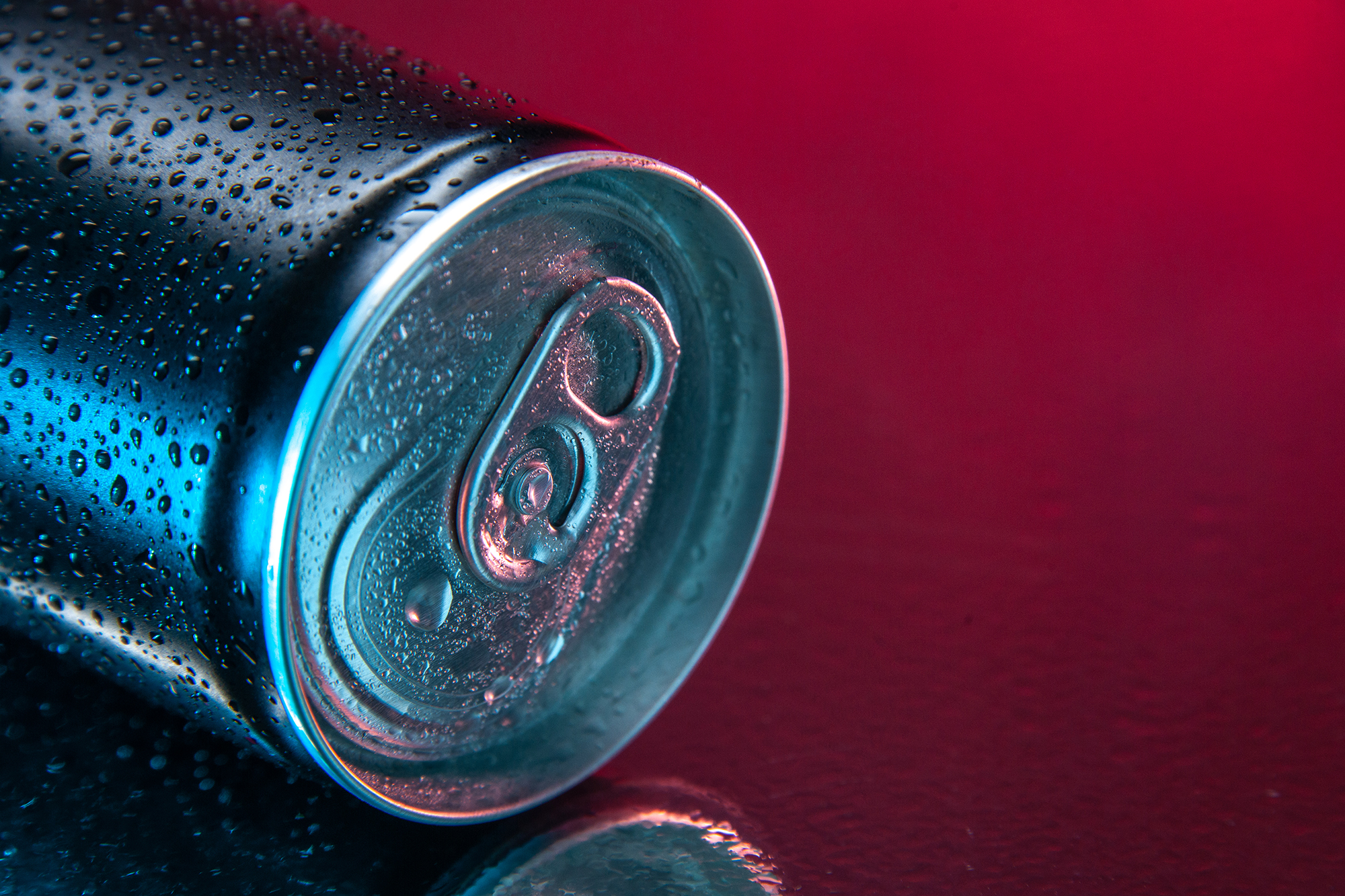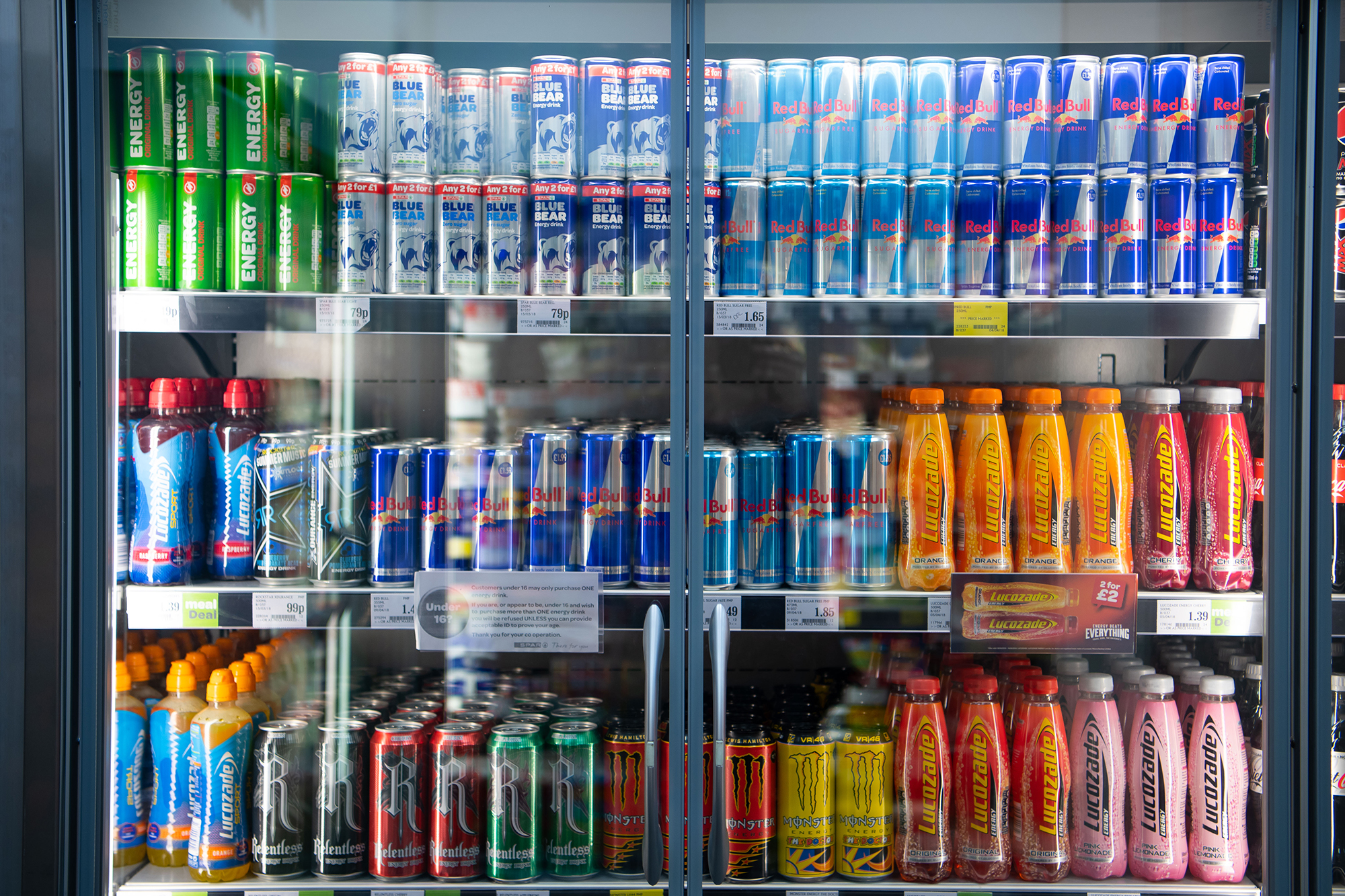Energy drinks cause heart attacks: Teenagers in danger
 What is the harm of energy drink abuse (photo: Getty Images)
What is the harm of energy drink abuse (photo: Getty Images)
Teenagers are increasingly consuming energy drinks as a way to cope with stress or to express inner rebellion. But usually, they don’t realize that this habit could cost them their health — or even their life.
Doctors explain how energy drinks affect the body in both the short and long term, and how to quit drinking them.
Why it's important to talk about abuse
The American Heart Association raised concerns about the safety of energy drinks back in 2019. The number of emergency department visits related to energy drink consumption in the US increased from 10,068 in 2007 to 20,783 in 2011. According to the FDA, there have been 34 documented fatalities associated with energy drinks, prompting investigations into their safety.
A Kantar survey revealed that 87% of teenagers experienced significant life changes during the full-scale war in Ukraine, while 13% did so during the pandemic. Approximately 40% of youth feel fear for their own and their loved ones' lives due to the war.
The study observed changes in children's emotional states, including sleep disturbances, irritability, cognitive impairments, anxiety, fatigue, decreased motivation for learning, hyperactivity, aggression, and frequent occurrences of enuresis (involuntary urination, typically during sleep, not caused by anatomical abnormalities of the urinary tract —ed.). There is also a high prevalence of depression and post-traumatic stress disorder.
The state of martial law forces teenagers to adapt, potentially leading to disruptions in their psycho-emotional development. Some seek solace in smoking, using narcotic and toxic substances, and consuming energy drinks, says pediatrician Zhanna Rudnieva.
What energy drinks are made of
Energy drinks are specially formulated beverages aimed at temporarily enhancing alertness, concentration, and physical activity, explains cardiologist Liubov Stetsiuk.
The components of energy drinks include:
- Caffeine: The primary stimulant that works by blocking adenosine receptors in the brain, reducing fatigue and increasing alertness, as supported by numerous studies.
- Taurine and other amino acids: These help maintain optimal cell function and may influence energy metabolism, though their exact mechanisms are still under research.
- B vitamins: Essential for metabolic processes, they aid in converting food into energy, supporting cellular vitality.
- Sugars and other carbohydrates: Quick energy sources that rapidly elevate blood glucose levels, though excessive consumption can lead to energy crashes after the initial surge.
Additionally, ingredients like guarana and L-carnitine may be included. Guarana is a potent plant-based stimulant, with one gram equivalent to 40 mg of caffeine.
One of the most controversial components is guarana. The issue is that the amount of this added caffeine is often not specified on the label, which can lead to overdosing, explains pediatrician Zhanna Rudnieva.
The American Academy of Pediatrics recommends that adolescents aged 12-18 limit caffeine intake to no more than 100 mg per day. However, energy drinks can contain between 100 to 200 mg of caffeine per serving.

Energy drinks often contain a much higher daily dose of caffeine than is allowed for teenagers (photo: Frepik)
Why teenagers start consuming energy drinks
According to family and holistic psychologist Anna Bogomolets-Lanina, teenagers' use of energy drinks signals a need for adult intervention and support.
Adolescence is not just a period of change; it's an internal whirlwind. Everything is in flux: the body, hormones, self-perception, and place in the world. A child who hugged a teddy bear yesterday wakes up today with a cracking voice or a body that feels foreign. And they need support, explains the expert.
If a child doesn't find support from parents, school, etc., they may turn to the "forbidden". Energy drinks can provide an illusion of strength, focus, freedom, and other things lacking in daily life.
Additionally, for teenagers, consuming energy drinks and other prohibited substances serves as a form of protest against control and a desire to test boundaries.
The dangers of consuming large doses of caffeine
Caffeine acts as a stimulant, but when combined with sugar, it creates an "energy burst." This excitement is typically accompanied by side effects such as rapid heartbeat, elevated blood pressure, nervousness, and insomnia. Following this heightened state, there's often a sharp and swift energy decline.
Moreover, frequent consumption of energy drinks can lead to dependence on the stimulated state.
Regular consumption of energy drinks is associated with an increased risk of cardiovascular diseases, including heart stoppage, myocardial infarction, spontaneous coronary artery dissection, and coronary vasospasm, reports Zhanna Rudnieva.
Chronic use of energy drinks may even lead to panic attacks. High doses of vitamin B found in these drinks can damage nerve cells, resulting in weakness and trembling of the limbs. Additionally, carbonic acid combined with taurine irritates the stomach lining, potentially causing gastritis and ulcers.
Short-term and long-term effects
Despite varying timelines, the risks associated with energy drink consumption affect similar bodily systems. Lyubov Stetsyuk outlines the following:
- Increased heart rate and blood pressure (short-term effect)
- Nervous excitability (short-term effect)
- Arrhythmias (long-term effect)
- Risk of developing cardiovascular diseases (long-term effect)
Patients with a genetic predisposition to cardiac arrhythmias may have an elevated risk of developing arrhythmias when consuming energy drinks. Although such events are rare, sudden cardiac arrest can occur, emphasizes Zhanna Rudnieva.
By the way, a study conducted in June 2024 identified over 5,000 patients who survived sudden cardiac arrest due to confirmed arrhythmias. Just like with alcoholic beverages, there is no safe dose of caffeine.
For patients with any genetic heart disorders associated with sudden cardiac death, the safe dose of a highly caffeinated energy drink is zero, says the pediatrician.
However, the cardiologist adds that there can be a positive effect from consuming energy drinks, though it is short-term.
One of the positive effects is a short-term improvement in cognitive functions such as attention and concentration. That is, such substances can be used to bring the body into 'combat readiness' for a short period, she says.

Abuse of energy drinks poses risks to the gastrointestinal tract and cardiovascular diseases (photo: Getty Images)
How to quit energy drinks
Doctors recommend reducing caffeine intake gradually, as a sudden withdrawal may be unpleasant, though it does not pose a health threat.
Parents should pay attention to their children’s diet and daily routine, since the same energy boost can be achieved through a balanced diet and healthy sleep. And vitamin B, also found in energy drinks, is naturally present in nuts, eggs, fish, and legumes.
If caffeine consumption is truly necessary, it's better to drink coffee or tea, which are natural sources, advises Rudnieva.
Family psychologist Anna Bohomolets-Lanina does not believe it’s necessary to consult a doctor immediately if your child has consumed an energy drink. In such cases, it's worth observing: can your child recover without stimulants, and do they know what it means to rest without guilt?
Do not try to talk to a teenager about energy drinks or other substances only through the lens of health hazards. The expert recommends trying other approaches:
- Speak from experience. Share how you felt exhausted, how you tried to “disconnect” from pressure.
- Speak through research. Explain how exactly an energy drink affects the body, without preaching, but with respect for the child’s intellect.
- Become an ally. Suggest a one-week experiment — live without stimulants and track daily how their well-being changes.
- Give the child an interest in themselves.
What helps avoid stimulants? Environment. A family where adults are not overwhelmed, where they are present. Where there are evenings without screens, conversations without judgment, hugs without 'hurry up.' Routine, sleep, and physical safety. Because when the body has recovered, it doesn’t need external recharges, the psychologist shares.
She emphasizes that every can of energy drink is not the result of bad parenting. It’s a signal of a lack of warmth, of not having a space where one can feel tired and not be mocked for it.
Sources: Kantar survey, MedicalNewsToday, Ukrainian Academy of Pediatric Specialties, comments from cardiologist Liubov Stetsiuk, pediatrician Zhanna Rudnieva, and family and holistic psychologist Anna Bohomolets-Lanina.
This material is for informational purposes only and should not be used for medical diagnosis or self-treatment. Our goal is to provide readers with accurate information about symptoms, causes, and methods of detecting diseases. RBС-Ukraine is not responsible for any diagnoses that readers may make based on materials from the resource. We do not recommend self-treatment and advise consulting a doctor in case of any health concerns.

